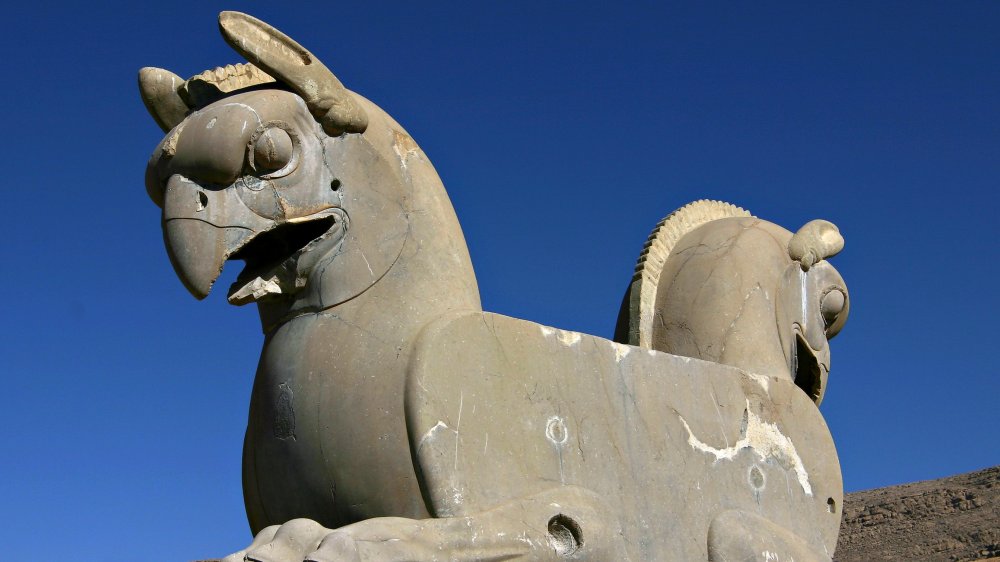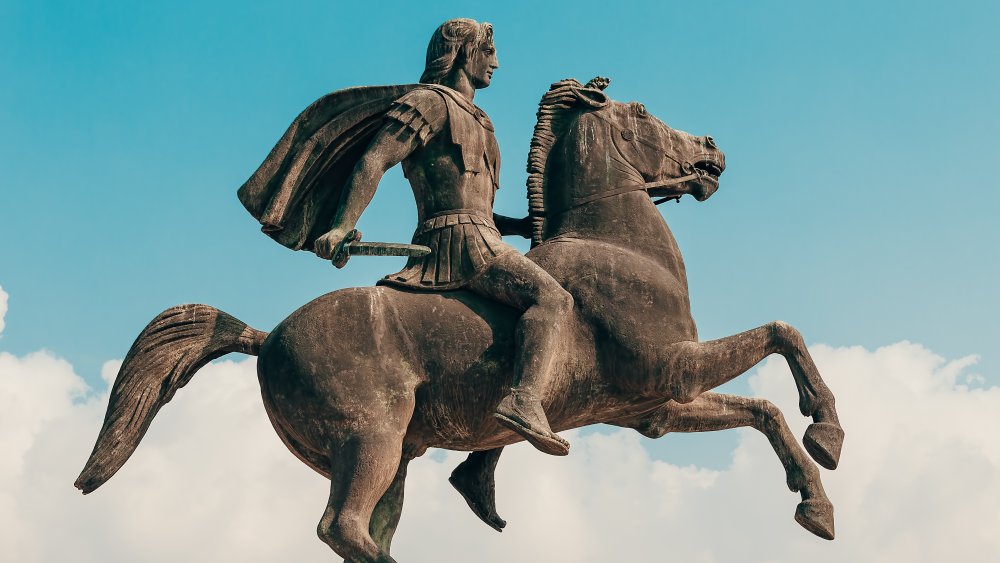We Now Understand Why The Persian Empire Crumbled
The mighty Persian Empire was born in the cradle of civilization, ancient Mesopotamia. Also known as the Achaemenid Empire, it emerged as "the world's first superpower" in the 6th century B.C., via History. Under the leadership of King Cyrus the Great, the Persians toppled Babylon, Media, and Lydia, consolidating them into a single kingdom. The great thing about life under Cyrus was his tolerance of religious differences and stated commitment to uplifting his subjects. As Encyclopedia Britannica details, the Greek soldier and author Xenophon describes Cyrus as an exemplary monarch and well-liked dude among his people. The Bible hails him as the great emancipator of Jews who were captive in Babylon.
That doesn't mean the Persian rulers didn't get iron-fisted. Per Der Spiegel, one of the ways "the generally mild-mannered" Persians punished people was to "throw them into the ashes." This entailed standing in an ash-filled room for days until they suffocated to death from breathing in ashes. "Sitting in the tub" was an innocuously named but hellishly executed capital punishment, wherein a convict was imprisoned in a wooden tub with only their head exposed and painted with milk and honey, which attracted flies. Intentionally kept alive, the prisoner would soon be trapped in a tub of their own feces, which attracts even more flies than vinegar. Flies, maggots and worms would gradually eat the person alive. In other words, the Persians were not to be trifled with. So what finally took them down?
The Persian Empire was great, but Alexander was greater
Persia had more than one great ruler who brought the empire to new heights. There was of course the aforementioned Cyrus the Great, who became the first emperor in 550 B.C., according to History. Persia would reach the zenith of its greatness under the fourth ruler, Darius the Great. Its vast expanse encompassed portions of modern-day Romania, Ukraine, Bulgaria, India, and Egypt. A juggernaut the likes of which the world had never seen, it would eventually grow too unwieldy and expensive.
Encyclopedia Britannica explains that the Persians established control over Greek city states, but they couldn't maintain it. Uprisings increasingly chipped away at Persia's power. Athens aided Ionia in an ultimately failed revolt, but as the Ancient History Encyclopedia details, when Darius attempted to raise taxes to fund his planned retaliation against Athens, he met massive pushback. His successor, Xerxes I led a failed invasion of Greece. Xerxes resolved to drown his failure in luxury and this "opulent isolation" ushered in a period of decline. The final nail in the coffin was hammered by Alexander the Great, who vanquished Persia's once great empire in 330 BC.

